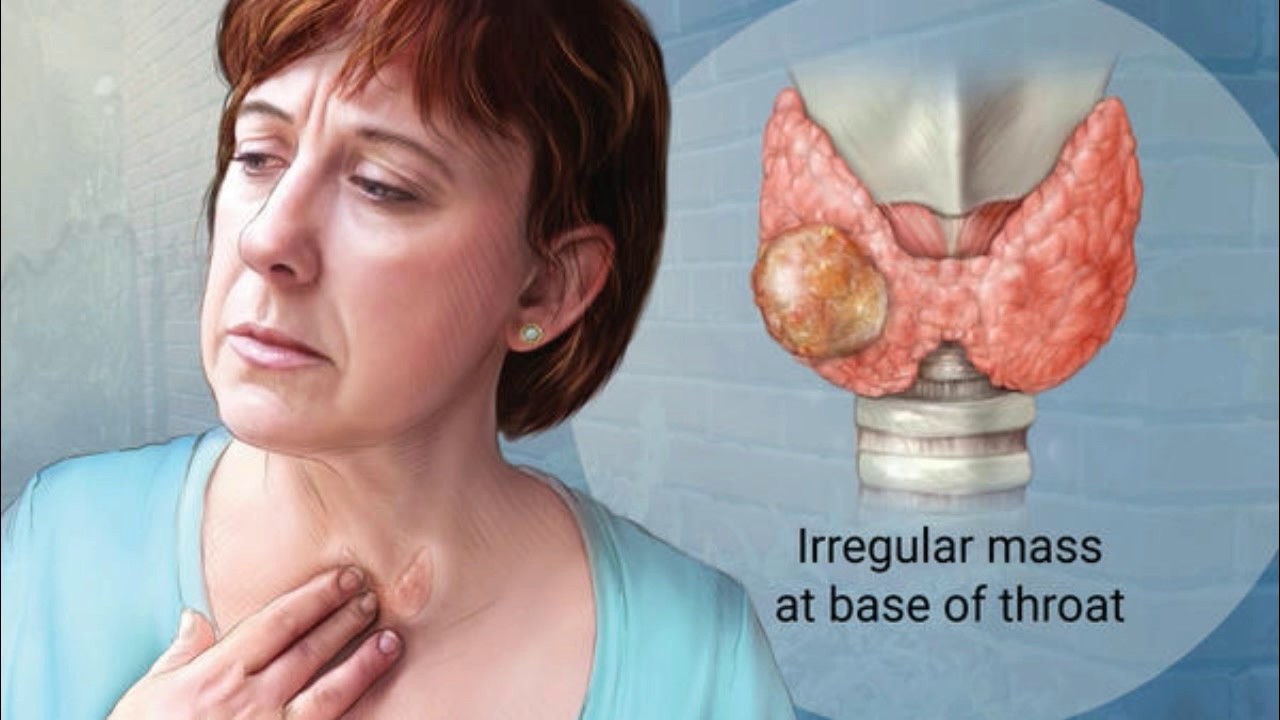There are a lot of types of cancer, all of which are pretty serious. However, some cancers are more common (e.g breast, prostate, lung cancer) and are given all of the attention but thyroid cancer is one that tends to fly under the radar, both in terms of discussion, and detection too. In fact, when it comes to thyroid cancer, there are a lot of signs and symptoms that easily go unnoticed. This is because a lot of thyroid symptoms are the ones associated with minor conditions, like the common cold, or allergies.
The good news is that thyroid cancer has a significantly high survival rate, with 90% of patients surviving it. However, there are still thousands of new cases each year, three-fourths of which are women. Treatment options include surgery and radiation therapy, and/or certain medications. As with other illnesses, the sooner you find out about it, the better your chances.
This is why it’s important to take note of any symptoms If you’re experiencing any of the following, don’t ignore them. Instead, you should seek medical counsel immediately.

Neck lumps
The thyroid gland is located in the neck, therefore the most obvious sign of a problem with the thyroid is a neck lump/swelling. However not every lump in the neck is cancer. Sometimes, lumps don’t come with pain, and therefore they are easy to ignore with the hope that they will go away. In the case of a lump caused by thyroid cancer, it should be fairly noticeable if it is on the front of the thyroid, as the skin there should always be smooth. Unfortunately there is no way to tell if a lump in the neck is cancerous or not just by looking, therefore it is best to seek medical attention if such a lump is noticed.

Chronic cough
Coughing can occur for a wide variety of reasons, ranging from allergic reactions to cancer. A cough that hangs around longer than usual can potentially indicate a serious problem. If you experience a particularly dry cough in the absence of other symptoms commonly associated with colds, it could be a thyroid problem. Specifically, a swollen or cancerous thyroid might put pressure on the windpipe or trachea, making it difficult to breathe, and therefore leading to fits of coughing.

Shortness of breath
Any growth/tumor in the body causes problems by compressing the organs around it. This is referee to as a “mass effect” and these effects vary depending on the parts of the body involved. However, in the case of thyroid cancer, shortness of breath is caused by growths that put pressure on the windpipe, or even invade the windpipe itself, making it difficult to get air into your lungs. This can happen at any time, not just during physical activity.
Difficulty swallowing
Similar to the above point, a thyroid mass in the throat can cause some difficulty chewing and swallowing, given that a portion of your throat is being squeezed or obstructed. This can lead to choking on bites of food you ordinarily would have no problem passing. If there is cancer in the thyroid, it can put pressure on the esophagus- though not always. If it does, you may discover swallowing difficulties. Typically, trouble swallowing is an uncommon problem, but it has a few causes. Don’t panic, but don’t write it off, either. See a medical professional to clear up concern.
Voice changes
We’ve all had that point during a cold or with a sore throat where our voice changes; just like a cough, it’s easy to assume it’s part of a cold rather than something more serious. For example, if there is a thyroid mass, it may press against the larynx, which is responsible for the voice. This can lead to a quiet, raspy whispering instead of a normal tone of voice. As with the other symptoms, changes in voice can occur as a result of a number of illnesses, some much less serious than thyroid cancer- but it’s something to consider, especially if it doesn’t resolve.
If you (or anyone you know) have been experiencing any of these symptoms, first of all: Don’t panic.
All of these symptoms could indicate a variety of conditions, some not so serious and easily treated. However the only way to be sure exactly what is going on with your body is to seek medical advice.
So go ahead and schedule an appointment with your doctor to discuss your symptoms and possibly arrange for further testing if necessary. Always remember that an ounce of prevention is worth a pound of cure.






